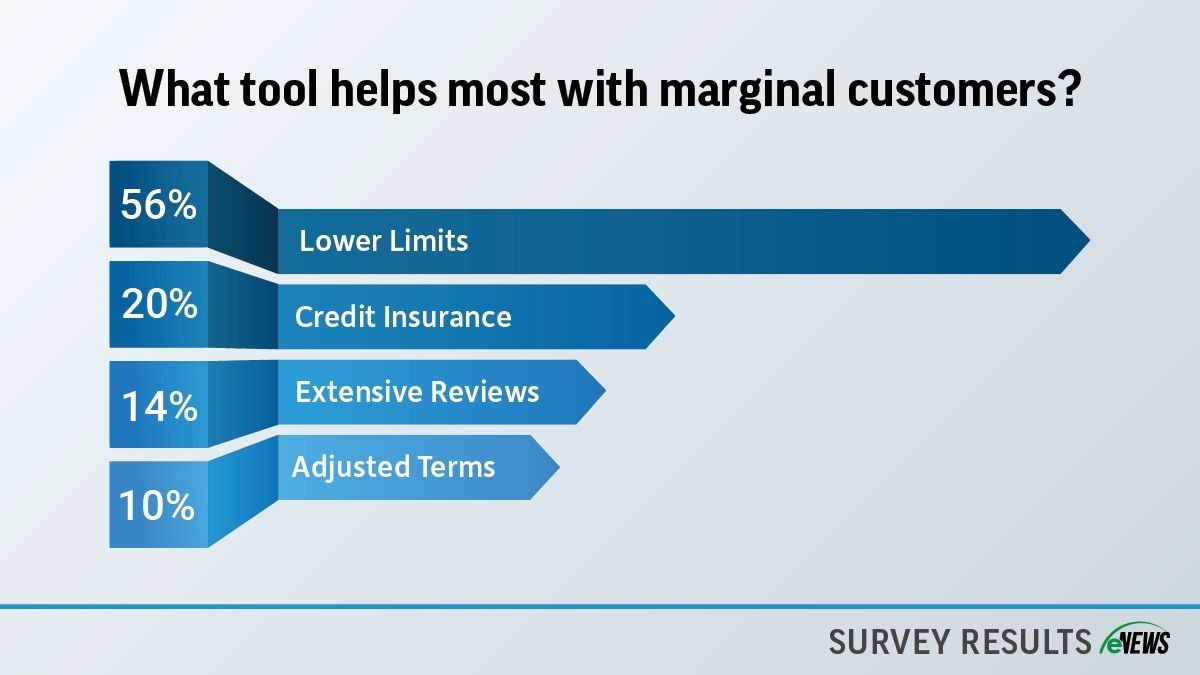eNews
Denying credit while staying compliant with ECOA and Regulation B

As the credit department works to secure payment and maximize sales, they are occasionally tasked with making tough decisions. While denying credit is often a last resort, credit managers may find that there is no other option.
Why it matters: Denying credit is a hard choice to make, but it is important that credit managers can communicate their decision to potential customers with respect to the legal constraints brought about by the Equal Credit Opportunity Act (ECOA) and Regulation B, which prohibit creditors from discriminating against credit applicants on the basis of race, color, religion, national origin, sex, marital status and age.
For many credit managers, the decision to deny credit is rare—not that all customers have glowing credit histories, but more so that there are creative alternatives to extending credit that offer more risk protection. “We may have situations where a customer is hesitant to provide information, so we make the decision upfront to do business with them, credit card or cash in advance,” said JoAnn Malz, CCE, ICCE, director of credit and collections for The Imagine Group (Shakopee, MN). “And then down the road, if they want to have a credit limit, then they would fill out our credit application.”
Having a solid procedure for how to communicate a credit denial to a customer is important. Setting clear standards for notification with regard to legal restraints is crucial for protecting your company from accusations of ECOA and Regulation B violations.
“Whenever we get a credit application that we decide we want to deny, we’ll start by emailing the salesperson and giving them a heads up because they deal with the customers face to face a lot more than we ever do,” said Dallas Kleiboeker, CBF, retail credit and membership manager at MFA Incorporated (Columbia, MO).
Issuing a denial may not be the end of the conversation with your customer, as they may reach out for more information regarding your decision. For these cases, it is best to have credit managers who are well-versed in the legal aspect to handle these conversations, rather than putting the pressure on the sales team to have those tough discussions.
“We first let the sales representative for the customer know that we are denying the credit request. Then we send a letter to the customer to inform them and let them know that if they have questions, they can feel free to call us,” Kleiboeker said. “If they do reach out, I try to be honest with the customer as to what we’re seeing and why it led us to the decision we made.”
When sending a letter or any notice that credit is being denied, it is critical that you inform the customer of their rights under ECOA and Regulation B. “If you don’t have the proper ECOA statement included in the letter you send notifying a customer of a denial, you need to make sure you are including it moving forward,” said Jason Mott, CCE, corporate credit manager at MFA Incorporated (Columbia, MO). “I would highly recommend that you consult with your attorney because you want to make sure that you have the right ECOA notice in your letter as well as the appropriate language.”
At times, the decision to deny credit comes from trade credit reports. “We’re not obligated to show the customer the credit reports we pulled,” Malz said. “We just have to provide where we receive that information so if they want to pursue it with those entities, they can.”
The bottom line: When going about notifying a customer on denying credit, whether you are sending an initial denial letter or having a subsequent conversation on your reasoning, it is important to have a firm understanding of ECOA and Regulation B so you know what can and cannot be said to a customer when denying credit.





